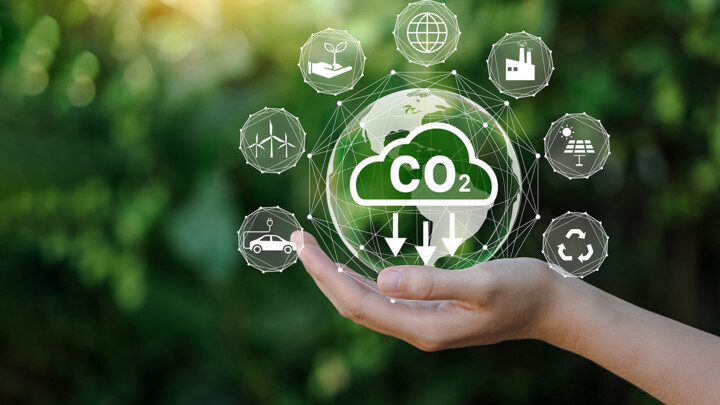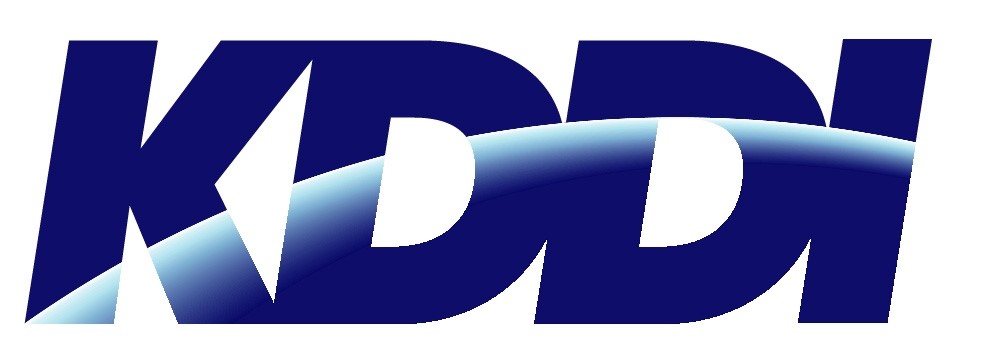Why the German Energy Efficiency Act Can Significantly Improve the Environmental Footprint of Digitalization
Dr. Béla Waldhauser, Spokesperson of the Alliance for the Strengthening of Digital Infrastructures in Germany, explores the transformative impact of the German federal government’s Energy Efficiency Act on the digital infrastructure landscape.

© Khanchit Khirisutchalual | istockphoto.com
In the course of the German federal government’s planned Energy Efficiency Act, politicians and the Internet industry have recently been intensively discussing how providers of the digital infrastructure ecosystem can further improve their energy efficiency in Germany. A particular focus here has been on the data center industry and the requirements for waste heat delivery.
The potential is clear: if the waste heat from data centers is used consistently, all residential and office spaces in Frankfurt – home to more than 60 data centers and the largest Internet Exchange – could, for example, be heated in a CO2-neutral manner by 2030.
Waste heat from data centers must not be allowed to fizzle out unused
Since its inception in 2018, the Alliance for the Strengthening of Digital Infrastructures in Germany, founded under the umbrella of the eco Association, has been highlighting this potential: Waste heat from data centers must not be allowed to fizzle out unused, and political and technical framework conditions are needed to improve the utilization of waste heat from data centers. In concrete terms, this creates the following: expanding local and district heating networks, improving technical systems for waste heat utilization, creating purchase obligations for heating network operators, and developing utilization options in both cities and rural areas.
The draft of a German Energy Efficiency Act by the Federal Ministry for Economic Affairs and Climate Action, which was made public in November 2022, called on data centers to deliver their waste heat. However, this was visualized to a completely unrealistic extent. Sufficient heating networks or perhaps a market of customers? Not a chance. This was all the more unfortunate given that the Climate Neutral Data Centre Pact has long been an international declaration of commitment by the industry to make data centers climate-neutral by 2030. This is embedded in the Energy Efficiency Directive for Europe, which is currently being coordinated.
Even so, the German federal government and the data center industry pursued the same goal from the very outset: to make new data centers, in particular, as energy-efficient as possible and to utilize waste heat as much as is achievable.
While theory and practice were too far apart for several months in the first drafts of the Energy Efficiency Act, in the end the parliamentarians of the German Bundestag did a great job. They took the concerns of the industry on board, and presented a more practical solution for the final adjustment that strengthens the sustainability goals, positions Germany as a pioneer in the energy efficiency of data centers and, at the same time – through at least a more balanced regulatory approach – tries not to have data centers' locations to be completely unattractive. Thus, an act that was initially poorly crafted could ultimately become a healthy regulation for more sustainable digitalization in Germany – that is, assuming that the act will now be quickly passed in September, following on from the overturned vote in the German Bundestag in the last session before the parliamentary summer break.
Energy Efficiency Act strengthens the environmental footprint of digitalization
As of today, the Energy Efficiency Act can be considered as a success for climate protection.
This is due first and foremost to the Power Usage Effectiveness (PUE) that is enshrined in the act. It indicates how effectively the energy supplied to a data center will be consumed. The closer the PUE value approaches the theoretical value of 1.0 for commercial data centers, the more energy-efficient the data center is, and the better its energy balance.
With a PUE value of 1.2, the ambitious target of the Energy Efficiency Act is now significantly lower than the European requirements (1.3). Germany is therefore playing a pioneering role in terms of sustainability and energy efficiency, which the data center sector is now supporting in the best possible manner.
Second point: The mandatory waste heat delivery from new data centers in operation from July 2026 onwards remains in place. The staggered flat rates of 10, 15, and then 20 per cent until 2028 have not been recently changed.
In addition, the planning of data centers are now to include the possibility of waste heat delivery from the outset through more stringent exemption regulations. Through the so-called readiness approach, operators are then in a position, if required, to release their waste heat at an acceptable, timely, technical, and commercial level.
Thirdly, there is still the obligation to use renewable energies for the operation of the data centers. The only problem in Germany is that the amounts of electricity made available from renewable energies are not yet sufficient for 24/7 operation throughout the country.
In addition, what also remains in place are the documentation obligations for the operators of data centers – for example, in terms of energy consumption, efficiency of the cooling system, amount of waste heat, or water utilization of data centers. However, these obligations are now more oriented towards the European Energy Efficiency Directive (EED). What’s more, operators are now no longer forced to disclose their trade secrets, but to share them concretely with their customers.
With this portfolio of specifications and regulatory approaches, data centers in Germany will significantly improve the environmental footprint of digitalization, far exceeding the specifications currently being prepared for the industry in Europe.
But challenges remain: Without sufficient renewable energies, a nationwide fiber-optic network and broad 5G coverage for mobile Internet in Germany, it will not be possible to maximize the potential for sustainability at the infrastructure level.
We will therefore continue to advocate for this in the future via the Alliance for the Strengthening of Digital Infrastructures in Germany.
Dr. Béla Waldhauser is Spokesperson for the Alliance for the Strengthening of Digital Infrastructures in Germany, set up in early 2018 under the umbrella of eco to support Germany’s development as a digital location. As a theoretical physicist, Dr. Béla Waldhauser is Chief Executive Officer of Telehouse Deutschland GmbH and KDDI Deutschland GmbH. Previously he was responsible for the German operations of Global Switch, and prior to that TeleCity. Before this, he was Managing Director for Germany and Austria for Teleglobe. For several years, he has been Leader of the eco “Data Center Infrastructure” Competence Group and, since 2011, Member of the Jury for the “German Data Center Prize” in conjunction with the annual “Future Thinking” congress. In 2014, he was invited by the German Federal Ministry of Education and Research, as an expert and as a member of the eco Association, to actively participate in establishing the new strategy platform for “ITC in Horizon 2020.”







